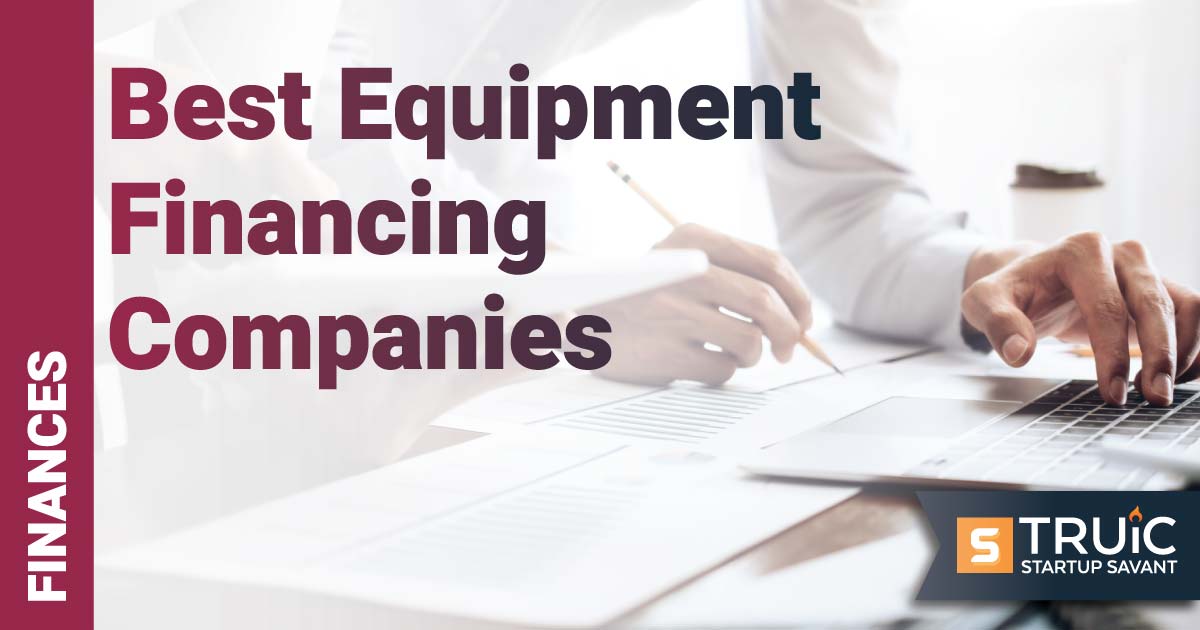10 Best Working Capital Loans for Startups in 2024

Last Updated: By Michaela Dale
Working capital is the money left over after expenses to conduct daily operations at small businesses and startups. Whether your business is having a slow period or experiencing cash flow gaps, working capital loans could help you overcome short-term financial challenges.
There are a variety of working capital loans available to startups and small businesses, from SBA loans to business lines of credit. These are the best working capital loans for startups.
We also recommend checking out our main list of the best startup business loans.
Top Working Capital Loans
|
Lendio
4.8/5 |
Best Overall
|
Apply Now |
|
Nav
4.6/5 |
Best for a Variety of Funding Types
|
Apply Now |
|
Uplyft Capital
4.6/5 |
|
Apply Now |
|
Accion
4.5/5 |
|
Apply Now |
|
Fora Financial
4.4/5 |
|
Apply Now |
Working capital loans are business loans taken on to finance everyday business operations. This may include payroll, rent and utilities, or inventory expenses. Working capital loans do not cover long-term investments such as property.
Whether you opt for a traditional small business loan, a business line of credit, or a business credit card, working capital financing can help your business cover necessary expenses early on in your startup’s life. These are the best working capital lenders available to startups.
10 Best Working Capital Loans of 2024:
- Lendio – Best Overall
- Nav – Best for a Variety of Funding Types
- Uplyft Capital – Best for Merchant Cash Advances
- Accion – Best for Minority Founders
- Fora Financial – Best for Flexible Loan Usage
- OnDeck – Best for Business Credit Building
- PayPal Working Capital – Best for PayPal Merchants
- SBA – Best for Long Repayment Terms
- Bluevine – Best for Established Businesses
- Fundbox - Best for Business Lines of Credit
1. Lendio
- Loan Amounts: $500 to $5 million
- Min. Credit Score: Varies by loan
- Min. Time in Business: Six months
Lendio is an online lender marketplace boasting a network of over 75 lenders. To use Lendio, you only need to submit one application to connect with their extensive network of lenders. Plus, you can opt to apply for a variety of funding options on the platform, from SBA loans to business lines of credit and everything in between.
This platform is the best for comparing several lenders to assess eligibility requirements, repayment terms, and time to funds after approval.
Pros
- Easy, one-application process for over 75 lenders
- Quick application and turnaround time for many loans
- Choose from a variety of business loans as well as lines of credit, equipment financing, and more
Cons
- Rates and fees can be costly depending on the loan or lender
Learn more by reading our Lendio review.
2. Nav
- Loan Amounts: $500 to $5 million
- Min. Credit Score: Varies by loan
- Min. Time in Business: Varies by loan
Another marketplace for business loans, Nav is a user-friendly platform to compare different funding options from small business loans to business lines of credit to merchant cash advances.
On the platform, you can search through over 70 lenders’ financing options to gauge eligibility and apply for working capital financing that suits your business. While there is a free tier available, you gain access to more features and functionality if you opt for a Nav membership.
Pros
- Several loan types and lenders to choose from
- Easy-to-use platform
- Free tier available
Cons
- To access the full suite of features, you have to pay for a membership
- Rates and fees may be costly
3. Uplyft Capital
- Loan Amounts: $8,000 to $500,000
- Min. Credit Score: N/A
- Min. Time in Business: Six months
Uplyft Capital offers merchant cash advance (MCA) programs, not small business loans. However, this type of funding can provide an appealing alternative to business loans – especially for startups and small businesses with bad credit or that need cash fast.
The cash advances are broken up into four programs: Starter ($8,000-$30,000), Standard ($5,000-$125,000), Premier ($10,000-$250,000), and Premier Plus ($30,000-$500,000). Each program offers different factor rates and terms. However, they all require only a few basic documents to apply.
Pros
- Quick turnaround time
- Accessible funding for businesses with bad credit
- Easy application process
Cons
- Merchant cash advances aren’t recommended for all businesses
- Since repayment is based on future sales, MCA involves a higher level of risk
Learn more by reading our full Uplyft Capital review.
4. Accion
- Loan Amounts: $5,000 to $250,000
- Min. Credit Score: None
- Min. Time in Business: Three months
Accion or Accion Opportunity Fund is a nonprofit lender on a mission to increase access to capital for all business owners. With 90% of their clients being women, people of color, or low-to-moderate income entrepreneurs, Accion is disrupting the business lending space to provide funding to help entrepreneurs succeed.
Pros
- Businesses with poor credit considered
- Dedicated to providing resources for underserved communities
- Loans are customized to the business’s needs
Cons
- Slower turnaround times than some competitors
- Not available in every state
5. Fora Financial
- Loan Amounts: $5,000 to $1.5 million
- Min. Credit Score: 500
- Min. Time in Business: Six months
With over 35,000 companies funded through their platform, Fora Financial is a popular online lender for small businesses and startups alike. They offer both small business loans and revenue advances.
Fora Financial offers a lot of flexibility for borrowers, including loan amount increases after 60% repayment, no usage restrictions, and prepayment discounts. This means startups can utilize their loan amount as they see fit or as expenses arise without hassle.
Pros
- Fast turnaround, only 24 to 48 hours
- No usage restrictions
- Low credit score minimum
Cons
- No business credit building option
- Shorter term lengths than some competitors
6. OnDeck
- Loan Amounts: $5,000 to $250,000
- Min. Credit Score: 625
- Min. Time in Business: One year
OnDeck offers two types of working capital funding: lines of credit from $6,000 to $100,000 and term loans from $5,000 to $250,000. For ongoing business expenses, the platform recommends their line of credit, while customers looking to finance bigger investments might be better served by one of their term loans.
OnDeck’s services are quick and easy, requiring only a simple 10-minute application. Once you’ve applied, an expert loan advisor helps to determine the best financing option for your business needs. Most notably, you can receive funds in as little as one day.
Pros
- Helps build business credit
- 10-minute application process
- No hard credit pulls
Cons
- Higher credit score minimum than some competitors
- Higher minimum time in business than some competitors
7. PayPal Working Capital
- Loan Amounts: $1,000 to $150,000
- Min. Credit Score: None
- Min. Time in Business: None
PayPal Working Capital is a business loan offered by PayPal for existing customers. Eligibility is based on PayPal account history. Plus, your loan is repaid, in part, with a portion of your PayPal sales. While you do get to choose the amount of your PayPal sales that is dedicated to repaying your loans, there is a minimum payment required (between 5-10%).
To qualify for this loan, Premier account holders must process at least $20,000 in annual PayPal sales, and PayPal Business account holders must process at least $15,000 annually.
Pros
- No periodic interest charges
- Approved funding is available in minutes
- No credit check
Cons
- Must be an existing PayPal customer for at least 90 days
- Minimum PayPal sales requirements apply
8. SBA
- Loan Amounts: Maximum $5 million
- Min. Credit Score: 650
- Min. Time in Business: Varies by loan
SBA loans are offered through the Small Business Administration (SBA). There are several loans offered through the SBA; however, the loans they offer directly pertaining to working capital needs are 7(a) Export Working Capital Program (EWCP) loans and CAPLines. The former is an umbrella program dedicated to helping entrepreneurs meet short-term and recurring working capital needs.
Pros
- Can be obtained through various lending institutions
- Several loan types and programs available
- Longer repayment terms than some other lenders
Cons
- Personal guarantee required
- Collateral may be required
9. Bluevine
- Loan Amounts: $6,000 to $250,000
- Min. Credit Score: 625
- Min. Time in Business: Two years
Bluevine offers business lines of credit up to $250,000 through a quick and easy application process. While Bluevine’s credit score minimum is lower than a few other lenders, your business must bring in at least $40,000 in monthly revenue and have been in business for at least two years to be eligible.
Therefore, this funding option is likely best suited to more established startups looking to increase their cash flow.
Pros
- No prepayment penalty
- Quick application and approval process
- Credit revolves as you repay what you spend
Cons
- Monthly revenue minimum applies
- Higher time in business requirement compared to other lenders
10. Fundbox
- Loan Amounts: Maximum $150,000
- Min. Credit Score: 600
- Min. Time in Business: Six months
Fundbox offers revolving business lines of credit up to $150,000 for qualifying small businesses based in the United States. Applying is quick and easy, taking only a few minutes. If you are approved for a Fundbox line of credit, you can receive funds in as little as one day.
Credit score and minimum time in business requirements are low; however, Fundbox’s annual revenue requirements are higher than many competitors.
Pros
- Quick application and approval process
- Choose your own repayment plan
- Low credit score minimum compared to other lenders
Cons
- High annual revenue requirement
- Only available to US-based businesses
Types of Working Capital Loans
While some lenders offer a singular type of loan for businesses seeking working capital financing, there are many lenders offering several loan types. These are the most common working capital loans for startups and small businesses.
Business Loans
Business loans or term loans are used for several purposes, from scale to short-term cash flow. These operate like traditional loans, with funds being available upfront.
Repayment for business loans involves monthly payments for a determined term – typically with interest. Small business loans or term loans are generally best for businesses that generate enough cash flow to ensure payments will be met in a timely manner.
Business Lines of Credit
For working capital financing, business lines of credit are a common choice. Not only are they flexible in the amount of capital you can spend – they are usually revolving, which means once you repay what you’ve spent, your access to cash will replenish. Terms for lines of credit may be shorter than some other financing options, which makes this better for short-term borrowing generally.
Merchant Cash Advances
Merchant cash advances (MCA) involve receiving funding that is repaid through a percentage of future sales from either debit or credit cards. This type of financing can involve high fees and may be higher risk than other funding alternatives. However, in some cases, MCAs offer businesses that work directly with customers a financial life line.
SBA Loans
Small Business Administration (SBA) loans can be obtained through an extensive number of banks and credit unions. There are a few types of SBA loans available to businesses seeking working capital funding: 7(a) loans, export working capital, and CAPLines.
Invoice Factoring
Invoice factoring involves utilizing unpaid invoices to generate capital by selling them to third-party invoice factoring companies. From this, you will generally receive about 85-95% of the value of the invoice. This can be a strong option for businesses that are having difficulty obtaining other types of funding, such as bank loans or lines of credit, as they typically do not focus as heavily on credit history requirements.
Pros & Cons of Working Capital Loans
Pros
- Many working capital financing options provide you with fast funding to increase your cash flow within days or even hours
- There are several types of funding available, which means although you may not qualify for your first-choice financing option, there are a myriad of alternatives available
- You can utilize funds for various purposes in many cases, especially business lines of credit, providing you with valuable flexibility
- Provides you with capital to overcome short-term financial issues such as cash flow gaps or temporary business lulls
Cons
- Depending on the type of funding, there may be difficult eligibility requirements, such as annual revenue minimums, which may make obtaining capital difficult
- Some types of working capital include high fees and rates, which can adversely affect your business’s cash position
- Repayment terms may be frequent, which could mean weekly or even daily payments
How to Get a Working Capital Loan
To get started, you should determine the amount of working capital your startup needs. This will prevent you from taking on capital that you don’t need, which can lead to additional financial distress in the future.
Next, you’ll need to choose the financial institution and loan type you’re interested in obtaining. In most cases, the application process will include a credit check and the submission of financial documentation as well as information about your business.
For many lenders, obtaining working capital funding can be done in one day. However, this varies depending on loan type and the lender you’re working with.
Recommended: Read our full guide on how to get a startup business loan.
FAQs
How do startups get working capital?
To obtain working capital for a startup, you need to apply with a lender and meet all qualifications. These typically include minimum credit score, minimum time in business, and annual revenue. However, requirements will vary depending on the loan type and lender.
In many cases, applying for a working capital loan takes only minutes and, if approved, can get you the necessary funding within days or even hours.
What type of funding source is best for working capital?
The best working capital funding source depends largely on the type of business and what you qualify for. We recommend Lendio’s business financing marketplace to compare loans, lenders, and eligibility requirements and find a funding source that will work for your business.
Are working capital loans a good idea?
Working capital loans can be a financial lifeline for startups expecting cash flow gaps or temporary slows in sales. However, you should always approach taking on any funding or loan with caution and ensure your business is in a position to repay the amount borrowed.
How do you qualify for a working capital loan?
Qualifications for working capital loans vary based on the type of loan and lender. Commonly, you will be required to meet the minimum credit score, minimum time in business, and annual or monthly revenue requirements to qualify for a working capital loan.






